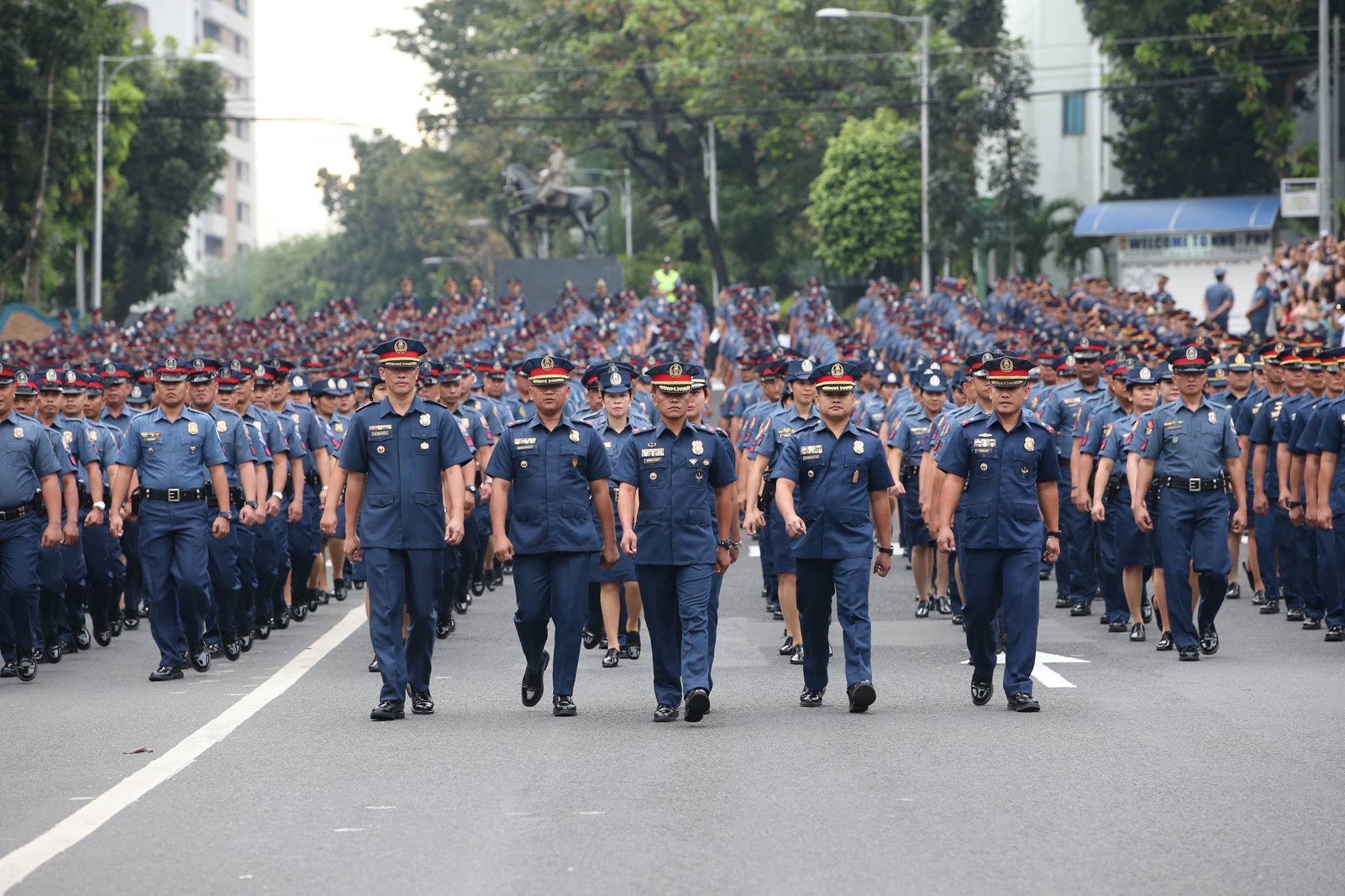SUMMARY
This is AI generated summarization, which may have errors. For context, always refer to the full article.

MANILA, Philippines – The Philippine National Police (PNP) on Wednesday, February 1, said it has always “observed and upheld human rights” as it slammed an Amnesty International report that detailed stories of alleged police corruption and abuse in President Rodrigo Duterte’s war on drugs.
“We take strong exception to opinions raised in the latest report of Amnesty International,” the PNP said in a statement, noting that the cases cited in the report were “obviously not the norm, despite a higher number of police operations that have resulted to inevitable fatal encounters with criminal elements lately.”
In a report released on Wednesday, Amnesty International said that killings in the drug war were fueled by an “informal economy of death.” Police were allegedly being paid to kill suspected drug personalities.
In study conducted over two months, which featured 33 cases resulting in 59 deaths, Amnesty International said police planted evidence, faked official reports, and even paid killers to get rid of drug targets. In 2014, the group released a report on torture in the PNP.
Still, the PNP insisted on Wednesday that it has “always observed and upheld respect for human rights as a fundamental principle in policing and is the institutional foundation of all training programs for police units and personnel.”
“The police cannot help being typecast as alleged violators of human rights partly because of the basic nature of its law enforcement function that constantly places the police in cross swords engagement or armed contact with criminal elements,” it said.
The report came out a few days after President Rodrigo Duterte dissolved the PNP’s Anti-Illegal Drugs Group (AIDG) and ordered a stop to all police anti-illegal drugs operations, effectively ending the PNP’s role in his drugs war.
Cases
Duterte announced the decision on Sunday, January 29, as more details about police involvement in the kidnap and murder of South Korean businessman Jee Ick Joo – right in Camp Crame, the police headquarters – became public.
The incident, which sparked outcry at home and abroad, prompting some sectors to call for the resignation of top cop Director General Ronald dela Rosa. The PNP chief tried to resign twice but was rejected by Duterte both times.
The Jee case isn’t the first time the PNP has been accused of abuse in the war on drugs. Mere months into the campaign, the Senate called for a probe into supposed extrajudicial killings by police.
One of the witnesses who testified before the Senate was cited in the Amnesty International report – a case of a drug suspect and his father slain inside the jail cell where they were detained.
But the Senate probe, after a switch of leadership, eventually concluded that the killings were neither state nor Duterte-sponsored. In a separate statement also released on Wednesday, Malacañang used the Senate probe’s findings as a defense against the report.
In November, Criminal Investigation and Detection Group personnel from Eastern Visayas killed a supposed drug lord protector, Albuera Mayor Ronald Espinosa Jr, also inside his jail cell in Leyte.
Police said Espinosa fought back, a claim the National Bureau of Investigation has debunked. (READ: NBI: Mayor Espinosa’s death a ‘rubout’)
PNP statement
Read the PNP’s statement in full:
We take strong exception to opinions raised in the latest report of Amnesty International which claim, that police plant evidence, take under-the-table cash, fabricate reports, and paid killers on police payroll.
These are obviously not the norm, despite a higher number of police operations that have resulted to inevitable fatal encounters with criminal elements lately.
The PNP has always observed and upheld respect for human rights as a fundamental principle in policing and is the institutional foundation of all training programs for police units and personnel.
The police cannot help being typecast as alleged violators of human rights partly because of the basic nature of its law enforcement function that constantly places the police in cross swords engagement or armed contact with criminal elements.
The PNP would like to point out that of the 4,744 murders under investigation that both local and foreign observers wrongfully refer to as “extra-judicial-killing”, 3,459 were determined to be non-drug related incidents 662 of which were motivated by personal grudge, 15 were related to property dispute, 16 were crimes of passion, 10 were “rido” or family feud, 11 were work-related and 2 were atrocities committed by threat groups. On the otherhand, only 1,285 incidents had something to do with the victim’s association with drug activities.
We have made significant breakthrough in the investigation of these murders with the arrest of 694 suspects and the identification of 467 others who are believed responsible in 1,212 reported deaths. Criminal charges have already been filed before the courts.
The PNP and every law enforcement agency in the world have different methods and system of reporting crime data. I guess we are just more transparent and liberal in reporting ours such that we are more prone to deeper scrutiny especially by foreign observers who have very little understanding of the peculiarities and dynamics of the crime and drug situation in the Philippines.
– Rappler.com
Add a comment
How does this make you feel?
There are no comments yet. Add your comment to start the conversation.